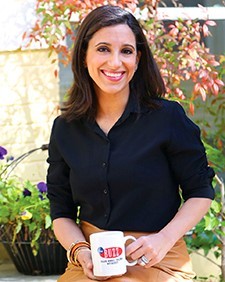Sunday Mornings with Rania: Dangers of Drinking and Driving

 It doesn’t matter if you know the families or knew the girls. Tragic doesn’t even begin to describe the incomprehensible deaths of 16-year-old Salma Gomez and 16-year-old Chloe Robison. And the unbearable events that unfolded on July 25, 2018 remind us of the need to once again talk to our children and all children about the dangers of drinking and driving.
It doesn’t matter if you know the families or knew the girls. Tragic doesn’t even begin to describe the incomprehensible deaths of 16-year-old Salma Gomez and 16-year-old Chloe Robison. And the unbearable events that unfolded on July 25, 2018 remind us of the need to once again talk to our children and all children about the dangers of drinking and driving.
And while we join the families who have lost daughters with bursting lives that were meant to be lived, we also have to watch the life of 17-year-old Jaggar Clayton Smith forever change. Harris County Sheriff’s Office Vehicular Crimes Unit has charged the teen with two counts of intoxicated manslaughter. Reports describe the accident this way {parents, I share the details because it’s important to walk your teens through the magnitude of this crash. Drunk driving accidents often lead to horrifying and violent deaths and this fact cannot be sugar-coated}:
- Smith, driving at a high rate of speed, failed to drive in a single lane
- His vehicle ended up off the roadway traveling southeast into the center median
- He struck a tree and the collision was so impactful, the vehicle broke in two
- The front portion of the vehicle rotated clockwise coming to a controlled rest in the median; the front right passenger (Gomez) was transported to Memorial Hermann northeast where she died due to injuries sustained in the collision
- The rear portion of the vehicle continued to rotate southeast striking another tree in the median; the back right passenger of the vehicle (Robison) died at the scene
- Smith (now called the “defendant”) was transported to Houston Northwest Medical Center where he was treated for his injuries and arrested.
The time of the crash was 12:25 a.m. and Smith was driving while intoxicated. Reports indicated that he allegedly drank an entire bottle of MD 20/20, a fortified wine, prior to getting in his car.
It leaves us asking so many questions. Why. Why did Smith choose to get behind a wheel while intoxicated? Why did Gomez and Robison allow Smith to drive them? Where were they prior to the accident? How did Smith get the alcohol? How do the parents move on? And how do we work together to make sure this doesn’t happen again? We need to talk and talk again to ensure that our kids know their options and make the right decision next time and every time a potential drinking and driving situation presents itself.
Stats – Texas Leads the Nation:
- We must keep the important conversation going because children are still losing their lives to reckless drunk driving accidents all the time.
- The CDC estimates that there are 2.4 million accounts of high school students driving while intoxicated every month, nationwide. Of the fatal crashes that occur involving alcohol, underage drinkers account for 17 percent of them.
- Texas leads the nation in drunk driving crashes and fatalities. That's why thousands of state troopers and local law officers across Texas are stepping up patrols and arresting drunk drivers.
- Every day, 29 people in the United States die in motor vehicle crashes that involve an alcohol-impaired driver. This is one death every 50 minutes.
- The annual cost of alcohol-related crashes totals more than $44 billion.
The Law:
People or businesses selling or giving underage kids alcohol can face criminal charges and financial crimes. The supplier of the alcohol may also be liable for loss and any/all damages that result because they gave a minor alcohol. Additionally, businesses can lose their license to sell alcohol.
In Texas, the legal limit for intoxication is a .08 blood alcohol content (BAC). If an officer thinks your driving is impaired, you can still be stopped and arrested for a DWI regardless of your BAC. Penalties get worse with every DWI offense. Remember that Texas is a zero tolerance state, which means punishment is automatically applied if your BAC is above .08.
Minors who purchase, attempt to purchase, possess, or consume alcoholic beverages, as well as minors who are intoxicated in public or misrepresent their age to obtain alcoholic beverages, face criminal consequences, fines, mandatory community service and loss of their drivers’ license. Consequences escalate with each infraction not to mention the mental and emotional toll that their actions will have on them for the rest of their lives. While Smith survived the crash, it will live with him for the rest of his life.
What Parents Can Do:
- Be a good role model: NEVER DRINK AND DRIVE.
- Have regular conversations and discuss drinking situations, options and expectations.
- Create a Parent-Teen Driving Agreement that puts your rules in writing to clearly set expectations and limits. Make sure this includes real options for your teen if they are in a precarious situation – either because they drank too much or are fearful that the friends have drank too much. No judgement or punishment if they make the wise decision to never drink and drive or get in a car with a drunk driver.
- Set up “safe driving” rules (which will turn into habits) for your teens including:
- Never drink and drive
- Never get into a car with someone who has been drinking
- Wear a seat belt on every trip
- Limit nighttime driving
- Set a limit on the number of teen passengers in the car
- Never use a cell phone or text while driving
- Obey speed limits
- Never, ever give drinks to a minor
What Teens Can and Must Do:
- Never drink and drive. Just never, ever do it
- Have a designated driver whenever alcohol is involved
- Call your parents or a trusted adult if you don’t feel comfortable getting into someone’s car
- If you don’t feel comfortable calling your parents, call a car service like Uber or Lyft and force friends who you know have been drinking to not get behind the wheels of their cars
- Always buckle up when driving – it’s your best defense against an impaired driver
- When you become old enough to purchase wine, liquor or beer, do not buy it for underage people
- Just say “no” to friends who urge you to drink and drive or to get into a vehicle with an impaired driver
- Drink responsibly; recognize that drinking too much can greatly impair your judgment, distort your hearing and vision, and cause a slew of symptoms
- If you plan to drink, tell a friend you trust to hide your keys
The simplest way to avoid drunk-driving incidents is to stay away from alcoholic beverages. Grab a soda, seltzer, or coffee instead, or simply say, “no, thank you.”
This is another tragedy that has struck our community. Chloe Robison planned to attend Arizona State University and pursue a degree in photojournalism. Salma Gomez, a well-loved athlete, was described by friends and family as a “ray of sunshine.” Both lights in the world, with a path, plan and purpose. And both, tragically taken from their family, friends, and communities due to a series of bad decisions.
Drinking and driving is preventable. It’s 100 percent preventable. But it will not stop unless we aggressively and consistently remind those we love about both the realities, the options and all the consequences. For the sake of these victim’s families, please, let’s keep this conversation going.
Want more buzz like this? Sign up for our Morning Buzz emails.
To leave a comment, please log in or create an account with The Buzz Magazines, Disqus, Facebook, or Twitter. Or you may post as a guest.


